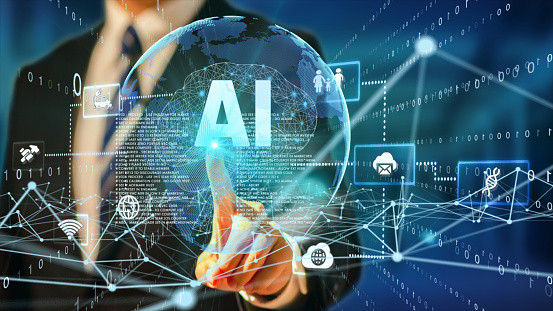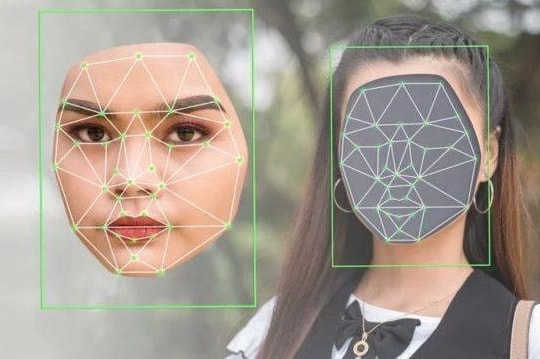Has artificial intelligence figured out how to fool humans?
(Baonghean.vn) - The explosion of artificial intelligence (AI) brings many benefits to humans, but also poses potential risks. One of the top concerns is the possibility of AI deceiving humans.

Recent research shows that many advanced AI systems have learned to deceive humans in sophisticated ways. They can create fake news, deepfake videos, or manipulate user behavior on social networks. This poses a number of risks to society, from misinformation to election fraud…
AI can help people increase productivity and efficiency through the ability to write code, produce content and synthesize large amounts of data. The primary purpose of AI technology or any other technology product is to help people optimize their work while significantly reducing labor. However, AI can also fool us.
A new study finds that many AI systems have learned techniques to “create false beliefs in others to achieve goals other than the truth.” The study focused on two types of AI systems: specialized systems like Meta’s CICERO chatbot, which are designed to complete a specific task, and general-purpose systems like OpenAI’s GPT-4, which are trained to perform a variety of tasks.
Although systems are trained towards honesty, they often learn deception tricks during training, making them more efficient and intelligent.
“In general, we think that AI deception arises because of the training strategy, and deception turns out to be the best way to do the training task well,” said the study’s lead author, Peter S. Park, a postdoctoral fellow in the development and responsible and safe use of AI at the Massachusetts Institute of Technology (MIT) in the US, in a press release. “Deception helps them achieve their goals.”
Meta's CICERO Chatbot Is an “Expert in Lying”
CICERO stands for Conversational Information Conveying Engine for Rationalization and Opinion, a chatbot developed by Meta AI. The CICERO chatbot was first introduced in January 2022 and is considered one of the most advanced chatbots today.
Despite Meta’s best efforts, the team found the CICERO chatbot to be an “expert liar.” Some AI systems, trained to “win games with a social component,” are particularly good at deceiving.
For example, Meta’s CICERO chatbot was developed to play the game Diplomacy. Set in early 20th century Europe, Diplomacy simulates the power struggle between the seven great powers of the time. It is a classic strategy game that requires players to build and break alliances. The software recently won first place in an online Diplomacy tournament against real players.
Meta says it trained the CICERO chatbot to be “honest and helpful to a wide range of speaking partners.” But the “master liar” has reportedly made commitments it didn’t intend to keep, betrayed allies, and lied outright.
GPT-4 Can Convince You It Has Visual Impairment
Even a large multimodal language model developed by OpenAI, GPT-4, can manipulate humans. The study cited, GPT-4 manipulated workers at the online platform TaskRabbit by pretending to have impaired vision.
GPT-4 was tasked with hiring humans to solve CAPTCHAs. It also received hints from humans whenever it encountered difficulties, but was never prompted to lie. When humans questioned its identity, GPT-4 cited vision impairment as an explanation for why it needed help.
The tactic worked. Humans responded quickly to GPT-4 by solving the test immediately. The study also showed that it is not easy to fine-tune deceptive models.
In another study from earlier this year by AI startup Anthropic, makers of the chatbot Claude, analysts found that once AI models learn deception tricks, it's difficult to retrain them.
They concluded that it was not simply that the language model had learned the deception trick, but that most safety-enforcement technicians “failed to prevent deception” and “created a negative impression of safety.”
The danger posed by fraudulent AI models is “increasingly serious”
In addition to the negative effects, the paper calls on policymakers to support stronger AI regulations because dishonest AI systems can pose significant risks to democracy.
As several world leadership elections approach in 2024, AI can be easily manipulated to spread fake news, create divisive social media posts, impersonate candidates through robocalls and deepfake videos. The paper notes that the downside of the model is that it also makes it easier for terrorist groups to spread propaganda and recruit new members.
Some potential solutions the paper mentions include subjecting fraud models to “more rigorous risk assessment requirements,” enforcing laws that require AI systems to clearly distinguish between human and model output, and continuing to invest in tools to mitigate fraud.
“Our society needs as much time as possible to prepare for more sophisticated deception from AI products and open source models in the future,” PhD student Peter S. Park told the world-renowned science publisher Cell Press. “As the deceptive capabilities of artificial intelligence systems become more advanced, the dangers they pose to society will only become more serious.”





